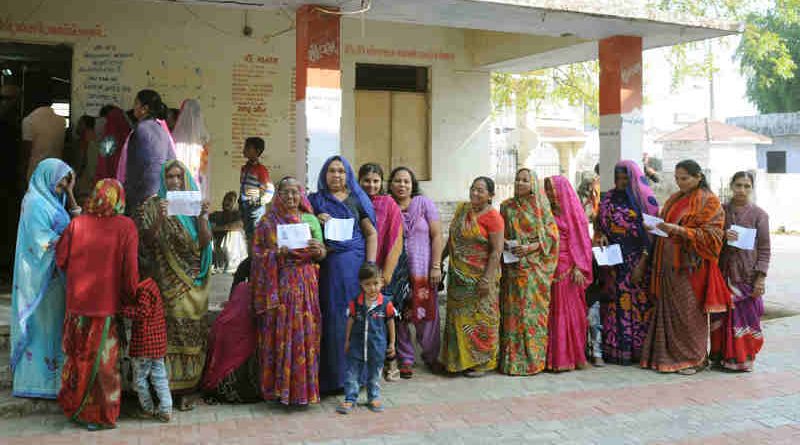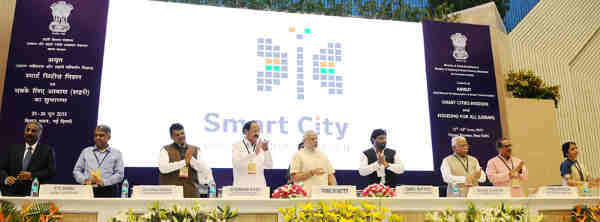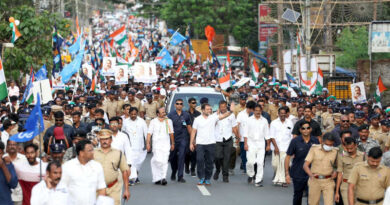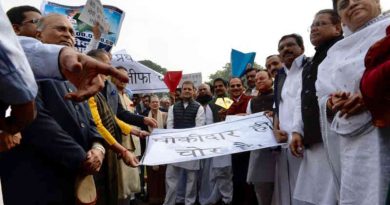End of EVMs: Maharashtra May Hold Elections on Ballot Papers

The researchers have found that even brief access to the EVMs could allow dishonest election insiders or other criminals to alter election results.
By Rakesh Raman
In order to check the possibility of election frauds on electronic voting machines (EVMs), Maharashtra has taken a serious step to introduce ballot papers in state elections.
Maharashtra’s Speaker Nana Patole on Tuesday (February 2) directed the state government to explore the option of using paper ballots for voters in addition to EVMs during the state and local body polls. According to a Hindustan Times report, the Speaker’s directive came in response to a request by a Nagpur resident who has urged the government to hold elections on ballot papers.
The demands for ballot papers keep coming from major opposition parties and citizens of India, because it is largely believed that PM Narendra Modi’s Bharatiya Janata Party (BJP) tampers with EVMs to win elections fraudulently.
As the Election Commission of India (ECI) – which is controlled by the Modi government – has repeatedly rejected the ballot paper proposals, Maharashtra is planning to use a specific legislation to discourage the use of EVMs.
In order to use ballot papers, Speaker Patole has proposed to explore Article 328 of the Indian Constitution that empowers the state legislature to make provisions with respect to the elections.
In response, according to an NDTV report of February 4, Maharashtra Deputy Chief Minister Ajit Pawar has said the state cabinet will decide about framing a law to give electors the option of casting vote via ballot papers besides EVMs in some elections.
However, officials from the State Election Commission (SEC) assert that the amendment related to local body elections can be made but not for state assembly elections since it is conducted under the Representation of People Act, 1951 which is a central law.
It is expected that the Modi government and the BJP will oppose any move that is aimed to discard EVMs. Major opposition political parties in India have been repeatedly complaining about the vulnerability of EVMs. Since most opposition politicians in India are weak and uneducated, they raise only feeble objections against the dubious election results. But finally they accept the results, and Modi’s BJP keeps controlling the power.
It is also being observed that when EVMs malfunction, they vote only in favor of Modi’s BJP which runs with Lotus election symbol. Obviously, BJP will always oppose paper ballots and any investigation into the misuse of EVMs. And it goes without saying that the Election Commission – which is a toothless outfit – will always obey Modi.
However, top tech experts believe that it is very easy to tamper with EVMs in India and change the election results fraudulently in favor of certain candidates.
In their study on EVMs in India, security researchers from India, the United States, and the Netherlands argue that “contrary to claims by Indian election authorities, these paperless electronic voting systems suffer from significant vulnerabilities.”
The researchers also have found that even brief access to the machines could allow dishonest election insiders or other criminals to alter election results. They have developed a video to demonstrate their claims.
Tech experts observe that besides other manipulations, the chip used in the EVMs is not of the OTP (One Time Programmable) category. That means, it can be programmed in each EVM to change the vote count in favor of a particular candidate.
The opposition parties in India have baselessly accepted EVMs integrated with Voter Verifiable Paper Audit Trail (VVPAT). But with this acceptance they have embarked upon a suicidal mission. They don’t understand that EVMs are vulnerable even with VVPAT.
Although VVPAT is supposed to provide a mechanism to audit the votes polled in an election, it is still not a foolproof solution because despite ECI’s claims VVPAT option may not be available with each EVM.
It is generally observed that the dishonest governments that control EVMs as well as the election authorities do not manipulate EVMs blatantly for the fear of being caught. They take the help of EVMs to change election results only in key polling stations where their candidates do not hope to win.
While there are repeated claims and counterclaims about the digital security of EVMs, the Indian government must invite independent international observers to supervise the functioning of EVMs in elections to ensure fairness in each election.
Also, the opposition parties must unite and demand all future elections on paper ballots. They must also demand the formation of a special all-party commission including international experts to probe the EVM-based voting frauds.
Earlier, the Association For Democratic Reforms (ADR) – a leading election research organization in India – had filed a petition in the Supreme Court regarding flaws in using EVMs in Indian elections.
The petition urged the court to direct the ECI to conduct actual and accurate reconciliation of (votes) data before the declaration of the final result of any election. It also appealed for an investigation into all such discrepancies in the data related to the 2019 Lok Sabha election results.
However, since courts and Election Commission work under the Modi government, they did not take any action to investigate the complaints against EVMs.
The opposition parties were vociferously opposing the use of EVMs before the election with allegations that BJP colluded with the ECI to tamper with the voting machines to win elections. But when the election results were declared in May 2019 and BJP won, all opposition parties went into a state of stony silence and did not challenge the results.
As the vulnerability of EVMs is clearly visible, it is believed that only those politicians and political parties will win future elections in India who know the art of stealing voter databases and hacking EVMs.
By Rakesh Raman, who is a national award-winning journalist and social activist. He is the founder of a humanitarian organization RMN Foundation which is working in diverse areas to help the disadvantaged and distressed people in the society.




